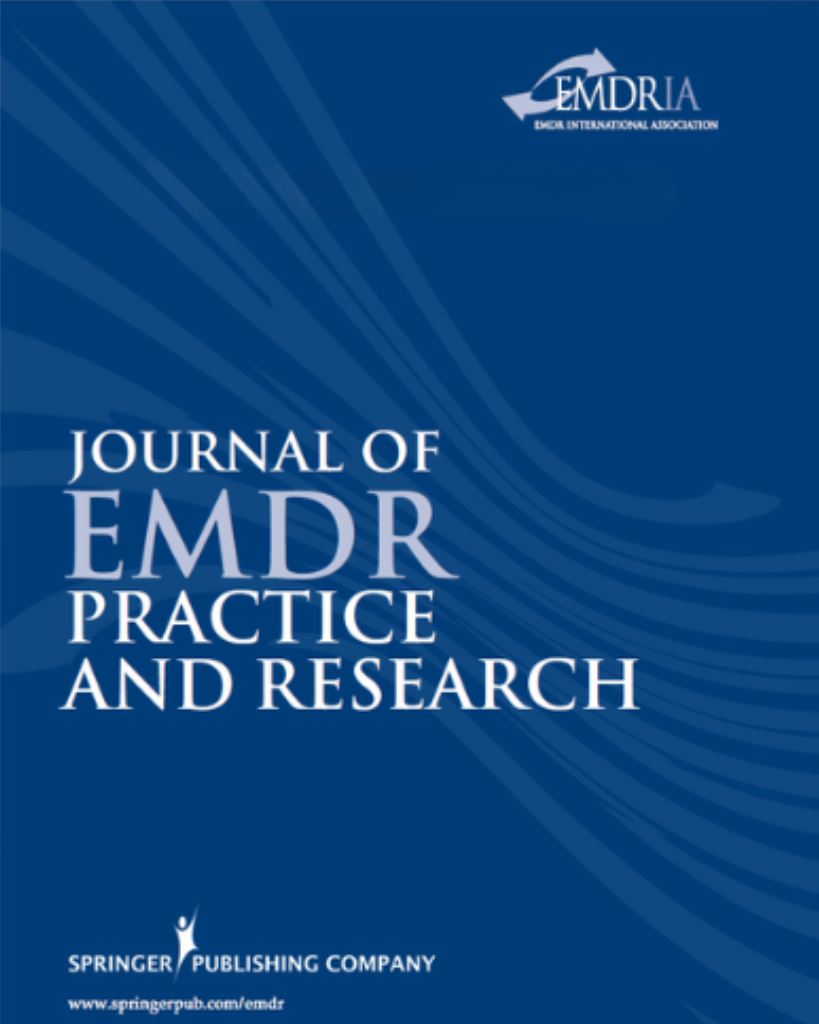Eye-movements and visual imagery: A working memory approach to the treatment of post-traumatic stress disorder
Hypothesis that eye-movements reduce the vividness of distressing images by disrupting the visuospatial sketchpad (VSSP) of working memory.
Article Abstract
“It has been claimed that the symptoms of post-traumatic stress disorder (PTSD) can be ameliorated by eye-movement desensitization-reprocessing therapy (EMD-R), a procedure that involves the individual making saccadic eye-movements while imagining the traumatic event. We hypothesized that these eye-movements reduce the vividness of distressing images by disrupting the function of the visuospatial sketchpad (VSSP) of working memory, and that by doing so they reduce the intensity of the emotion associated with the image. This hypothesis was tested by asking non-PTSD participants to form images of neutral and negative pictures under dual task conditions. Their images were less vivid with concurrent eye-movements and with a concurrent spatial tapping task that did not involve eye-movements. In the first three experiments, these secondary tasks did not consistently affect participants’ emotional responses to the images. However, Expt 4 used personal recollections as stimuli for the imagery task, and demonstrated a significant reduction in emotional response under the same dual task conditions. These results suggest that, if EMD-R works, it does so by reducing the vividness and emotiveness of traumatic images via the VSSP of working memory. Other visuospatial tasks may also be of therapeutic value.”
—Description from publisher
Article Access
Purchase/Subscription Required
Andrade, J., Kavanagh, D., & Baddeley, A. (1997). Eye-movements and visual imagery: A working memory approach to the treatment of post-traumatic stress disorder. British Journal of Clinical Psychology, 36(2), 209-223. https://doi.org/10.1111/j.2044-8260.1997.tb01408.x
Date
May 3, 1997
Creator(s)
Jackie Andrade, David Kavanagh, Alan Baddeley
Practice & Methods
Mechanisms of Action
Extent
15 pages
Rights
1997 The British Psychological Society
APA Citation
Andrade, J., Kavanagh, D., & Baddeley, A. (1997). Eye-movements and visual imagery: A working memory approach to the treatment of post-traumatic stress disorder. British Journal of Clinical Psychology, 36(2), 209-223. https://doi.org/10.1111/j.2044-8260.1997.tb01408.x
Audience
EMDR Therapists, Other Mental Health Professionals
Language
English
Content Type
Article, Peer-Reviewed
Access Type
External Resource





